Our Verdict
The Origin EVO16-S is a thin gaming laptop that sacrifices a fancy screen and still manages to chew through a variety of games at impressive settings.
For
- Powerful GPU
- Sleek and quiet build
Against
- Lack of a 1440p option
- CPU performance falls a little short
PC Gamer's got your back
Screen size: 16.1-inch
Resolution: 1920 x 1080
Refresh rate: 144Hz
CPU: AMD Ryzen 7 6800H
GPU: Radeon RX 6650 M XT
Memory: 32GB DDR5
Storage: 1TB NVMe SSD
I/O: 1x 3.5mm audio jack, 1x 3.5 microphone jack, 1x RJ45 LAN port, 1x HDMI 2.1, 2x USB 3.2 Type-A, 2x USB 3.2 Type-C
Battery: 80W
Weight: 5lbs
Price: $1,799
Origin's latest slim EVO16-S gaming laptop squeezes itself in between other heavy hitters in the same price range. It's a little more expensive than laptops like the Acer Predator Helios 300 and the Lenovo Legion 5 Pro, and it doesn't perform significantly better than them. But the differences are minimal and for a 1080p laptop with an AMD Radeon RX 6650M XT, the EVO16-S offers a sweet spot if your gaming habits don't require a higher resolution and refresh rate.
Although the 6650M XT and the Ryzen 7 6800H keep the EVO16-S fed when it comes to gaming performance, its 1080p 144Hz screen doesn't have a tremendous appetite. If this laptop were equipped with a 1440p panel or touted a 165Hz or 240Hz refresh rate, the graphs below would tell a different story. The EVO16-S isn't strapped with anything absurd or overkill; it's a gaming laptop for someone that isn't quite sure what they want.
My EVO16-S review unit costs around $1,920. Instead of the basic 16GB of RAM, mine has 32GB, and it also has a 1TB SSD. It's a steep price for an AMD-based laptop that mirrors the other options out there with Intel's Core i7 12700H and Nvidia's RTX 3060. If you cut the RAM and SSD in half, you can get the price down to around $1,500. For me, that's the only price that this laptop makes sense as an alternative—that is, if you're not desperate for a better screen.
I don't see the need for anything over 1080p and 144Hz on a mid-size laptop unless you specifically play the sorts of games that demand it. I play an embarrassing amount of Overwatch 2 with a 4K 144Hz monitor on my desktop setup. The swap back to 1080p at the same refresh rate on the EVO16-S wasn't as big of a downgrade as I expected. Not only did the game run fine on medium and high settings, but the smaller screen size eased the transition. I had more trouble adjusting to the laptop's membrane keyboard than the experience of looking at it.
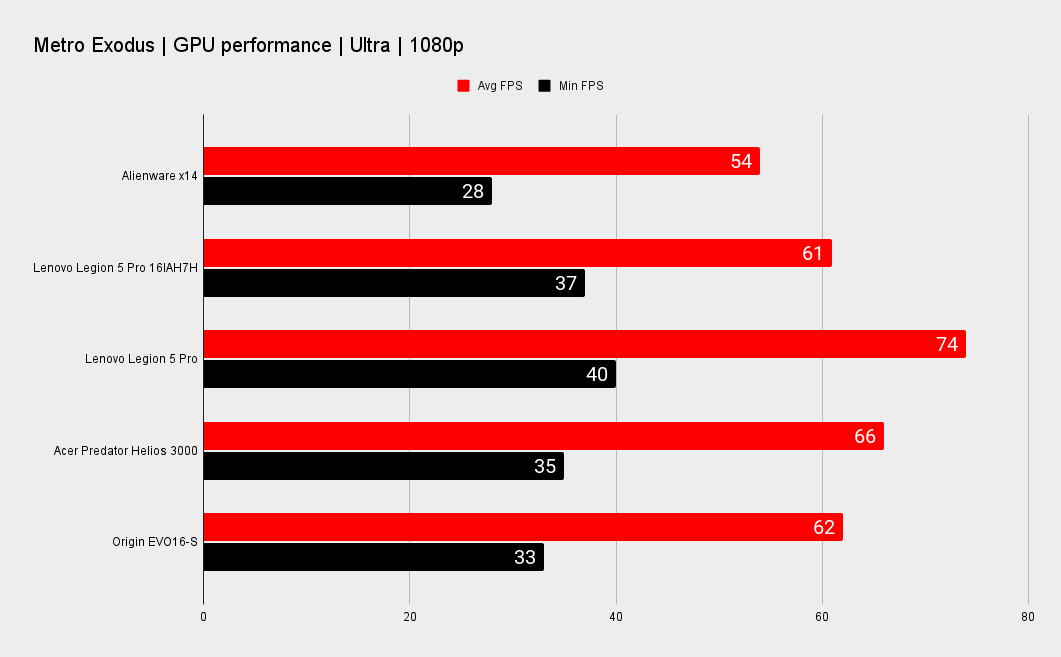
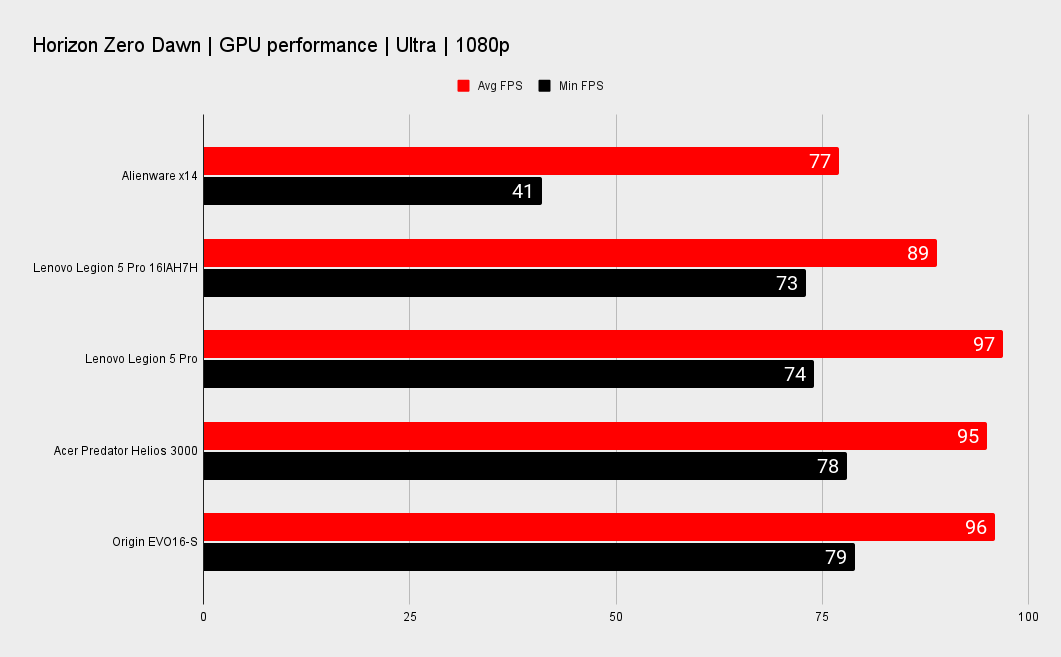
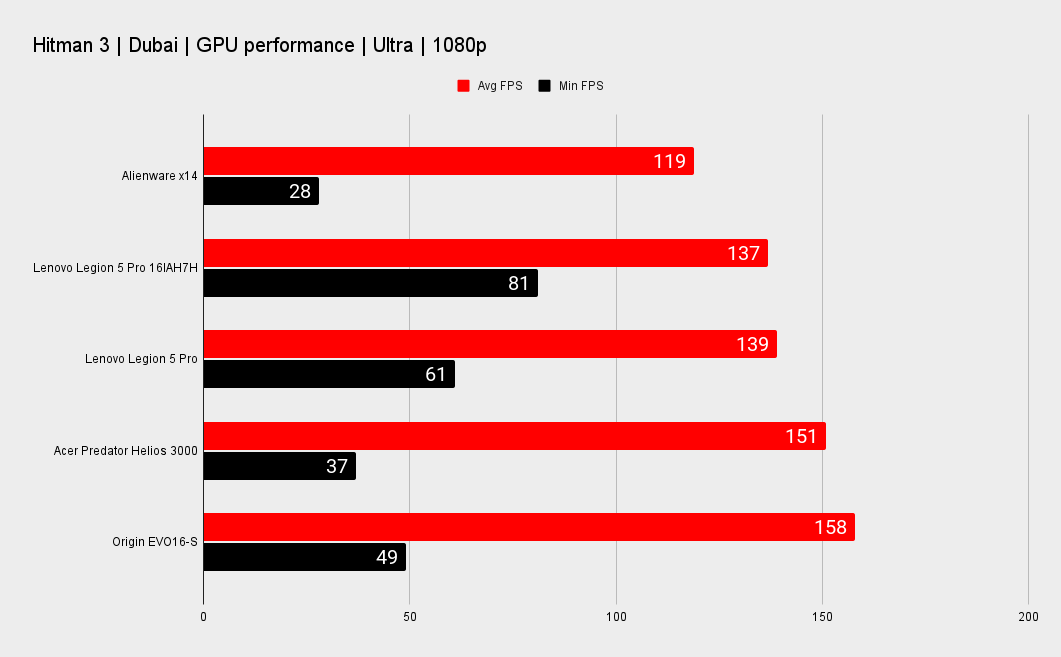
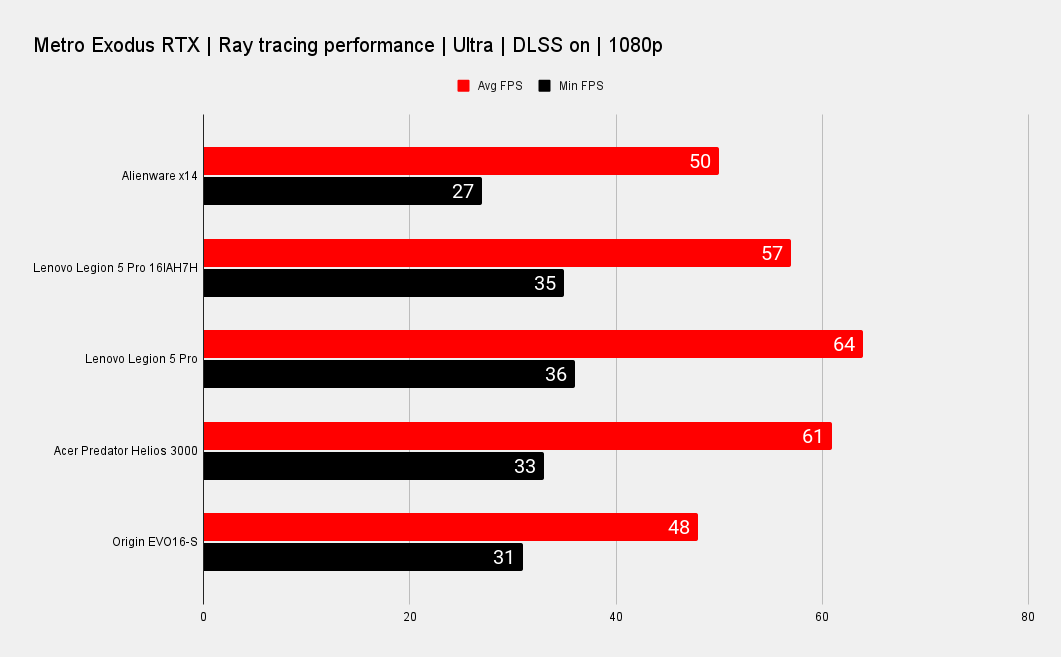
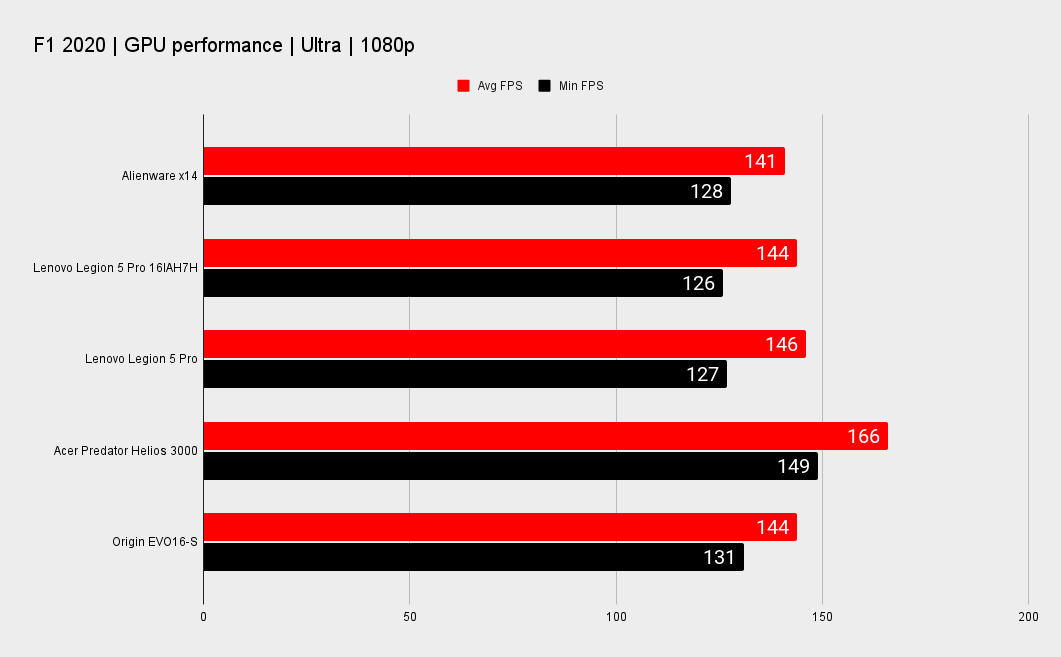
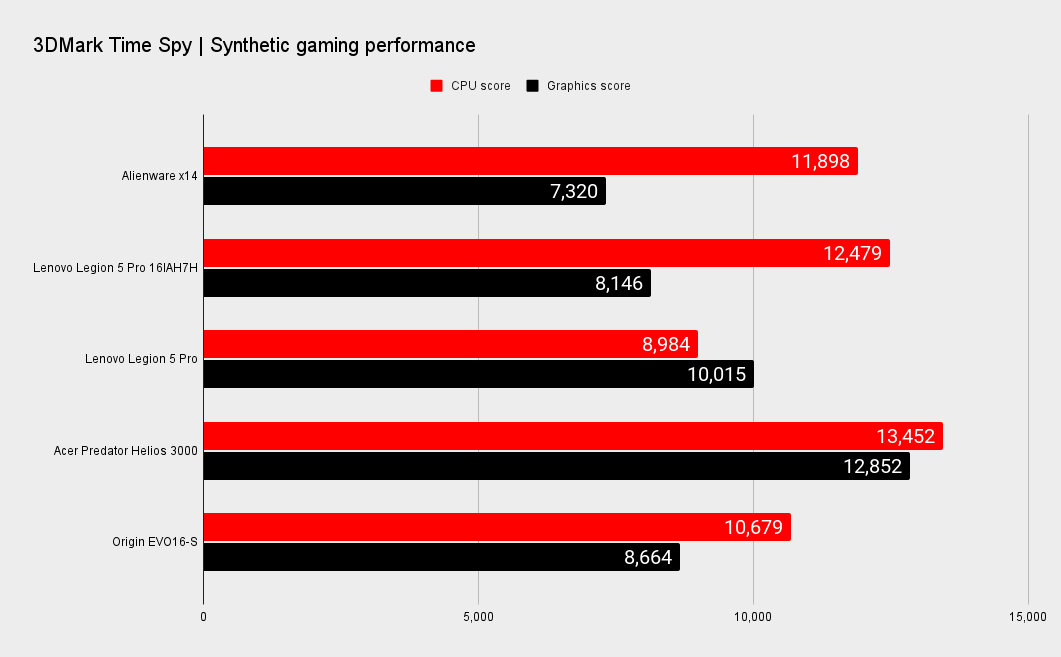
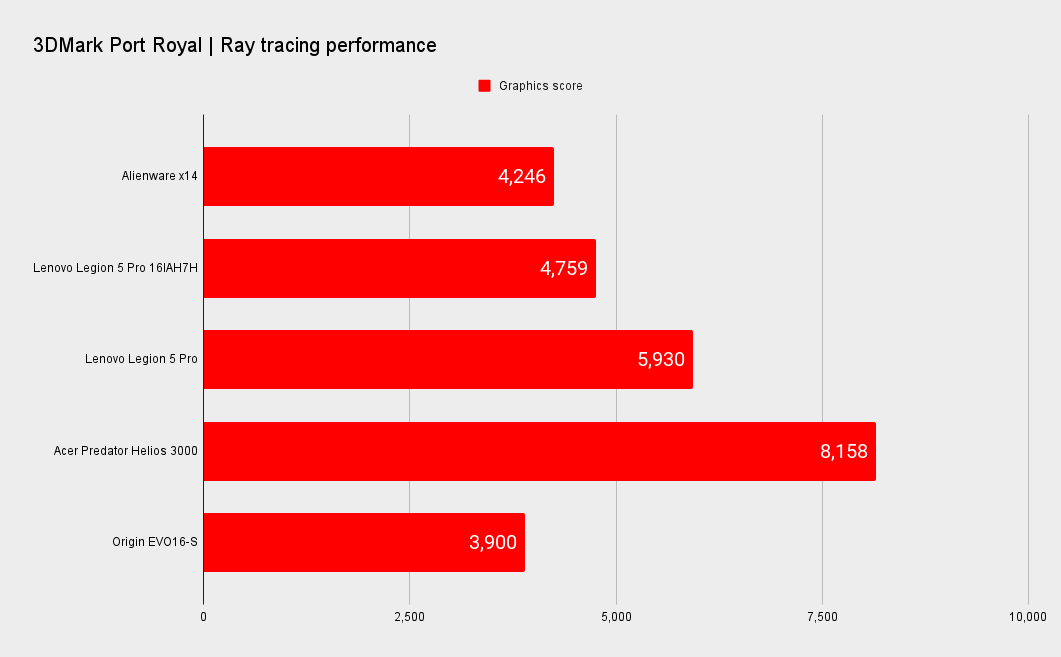
Knock down a few graphics settings and you could easily play a variety of games on it.
The EVO16-S turns down high specs to get a lot out of its modest setup. The RX 6650M XT got real close to 144 fps in many of the games I tested, like Hitman 3, F1 2020, Overwatch 2, and Call of Duty: Modern Warfare 2. Knock down a few graphics settings and you could easily play a variety of games like that. AMD's FreeSync Premium helps smooth out inconsistencies in the fps too.
The RX 6650M XT can't quite match the power of a good Nvidia RTX 3060 when it comes to ray tracing. In my Metro Exodus RTX test, it couldn't get close to 60 fps, clocking in at an average of 48 fps. It's not a great look against cheaper laptops with better screens on them, but I also can't imagine the person that wants impressive ray tracing performance out of a laptop at this price. EVO16-S owners are opting into the ray tracing off and FSR on lifestyle. If you want more, you're going to have to spend more.
The EVO16-S' Ryzen 7 6800H also stumbles when compared to Intel's Core i7 12700H. In the Hitman 3 Dartmoor test, the EVO16-S came in at a slightly lower average frame rate. You can see a similar difference in the Cinebench R20 scores too. The Ryzen CPU can't quite keep up, which will probably have a noticeable impact on processor-hungry open world and strategy games. Given the EVO16-S' strengths in everything else though, I don't think this is a deal breaker.
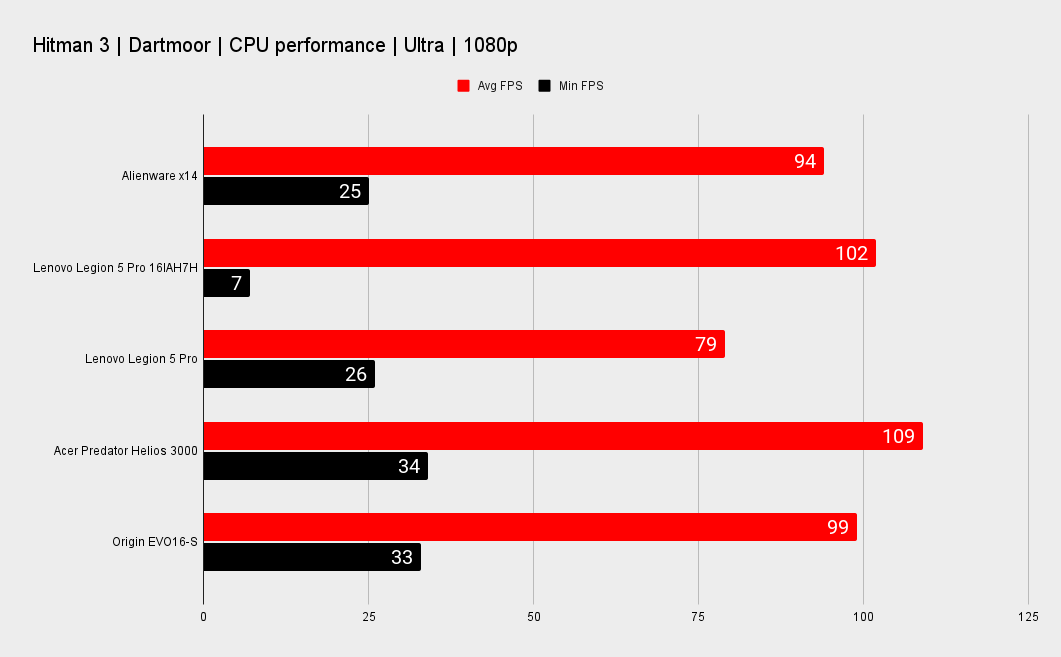
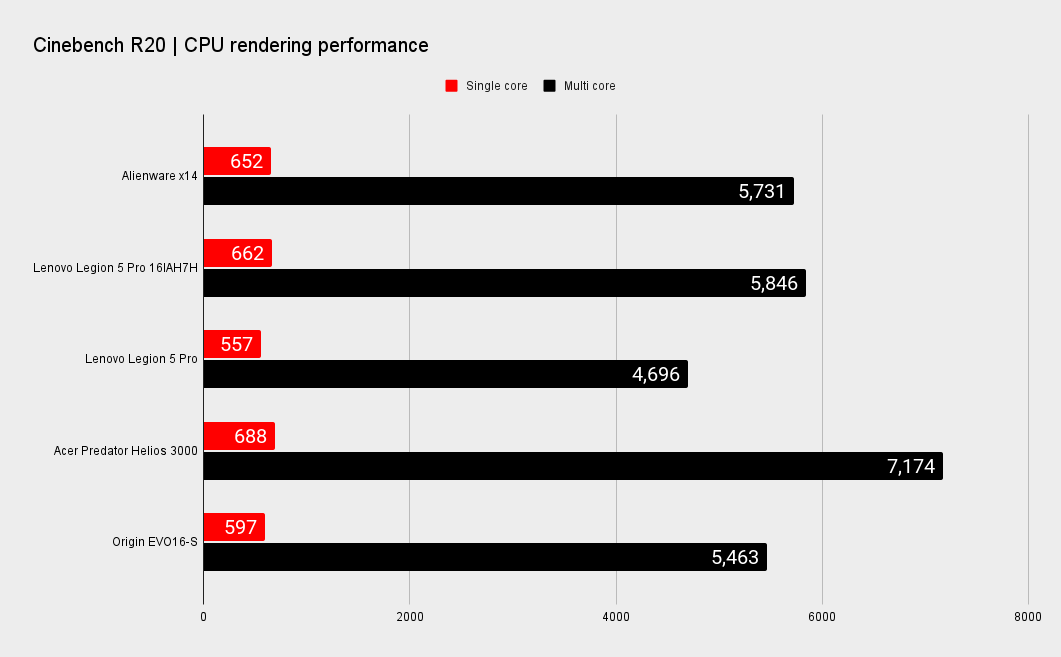
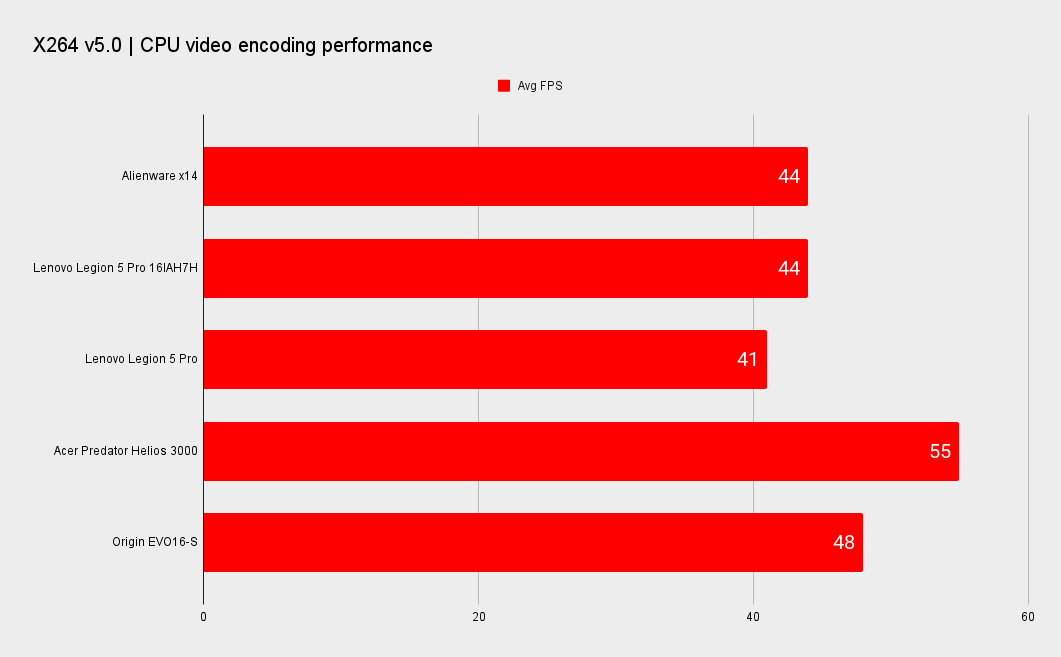
My unit's 32GB of DDR5 memory was also in step with the competition. In the SiSoft Sandra test, it came in at 42 GB/s. The EVO16-S is no slouch when it comes to multitasking, but I still think you could drop it to 16GB to save some money.
The 1TB Gen4 Samsung NVMe SSD in the EVO16-S is also neck and neck with similar laptops. The Final Fantasy 14: Endwalker benchmark results put it at around 11 seconds. I didn't run into any egregiously long load times in my tests either. Like the RAM situation, I think you could cut this down to 512GB and not miss out on much.
Like most of Origin's gaming laptops and desktops, the EVO16-S has a clean look. Origin lets you customize the outside with various patterns for an extra fee, but I wouldn't bother. The stock black style is what I'd prefer out of a laptop. The other, tech-y and futuristic color schemes are way too much for me. Leave it to the full size RGB backlit keyboard and RGB strips on the front edges to accentuate it. My only small gripe with the keyboard situation is the squished right Shift key that never quite feels right under my finger, but I could see that going away the more I use it.
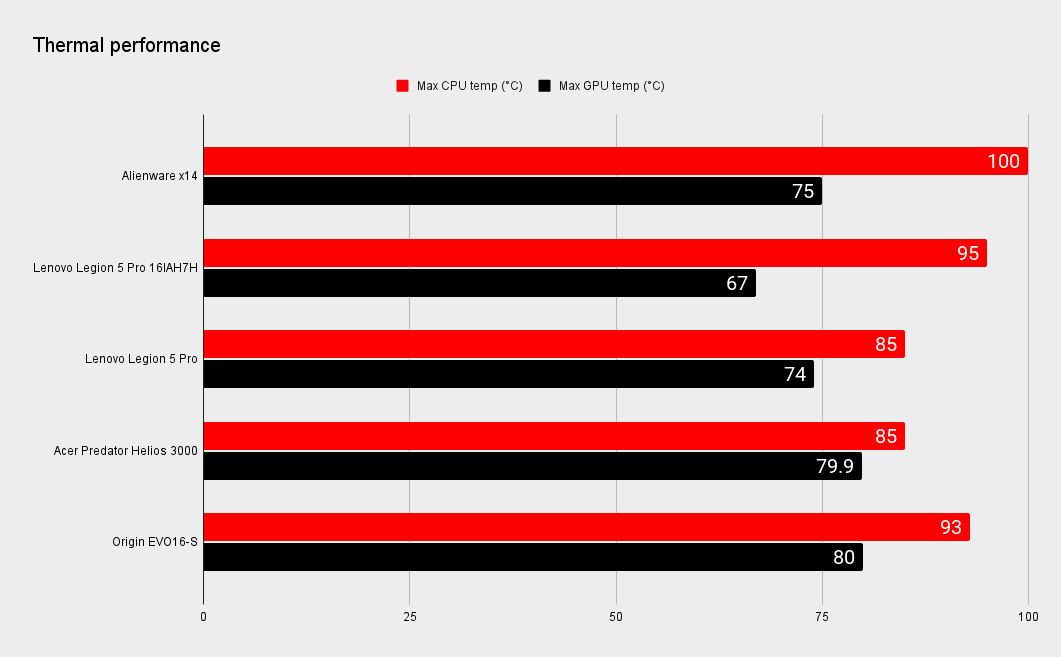
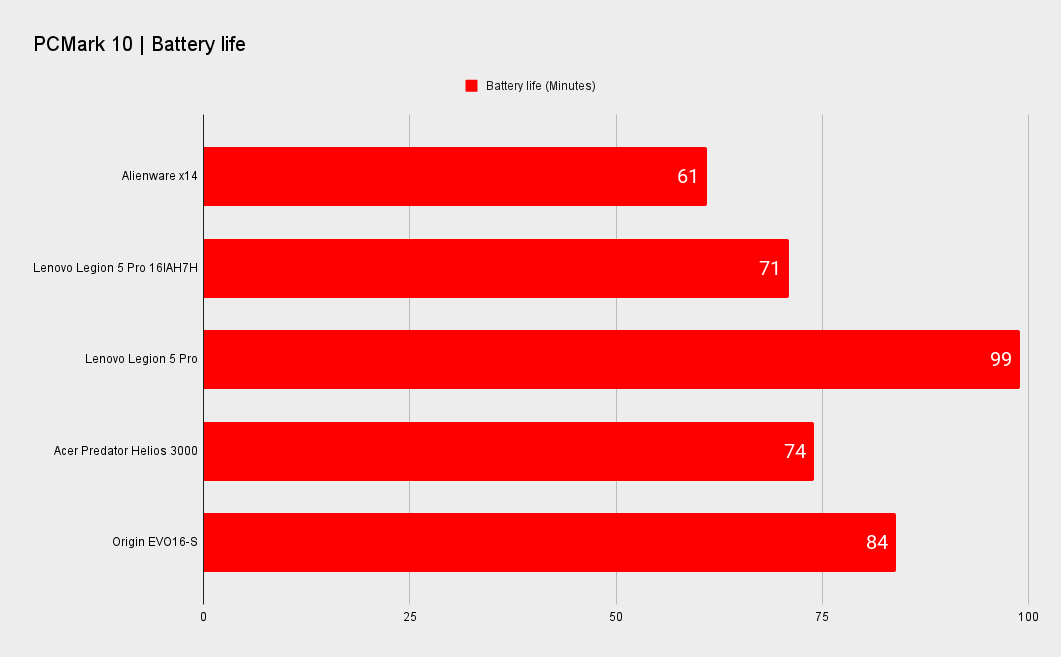
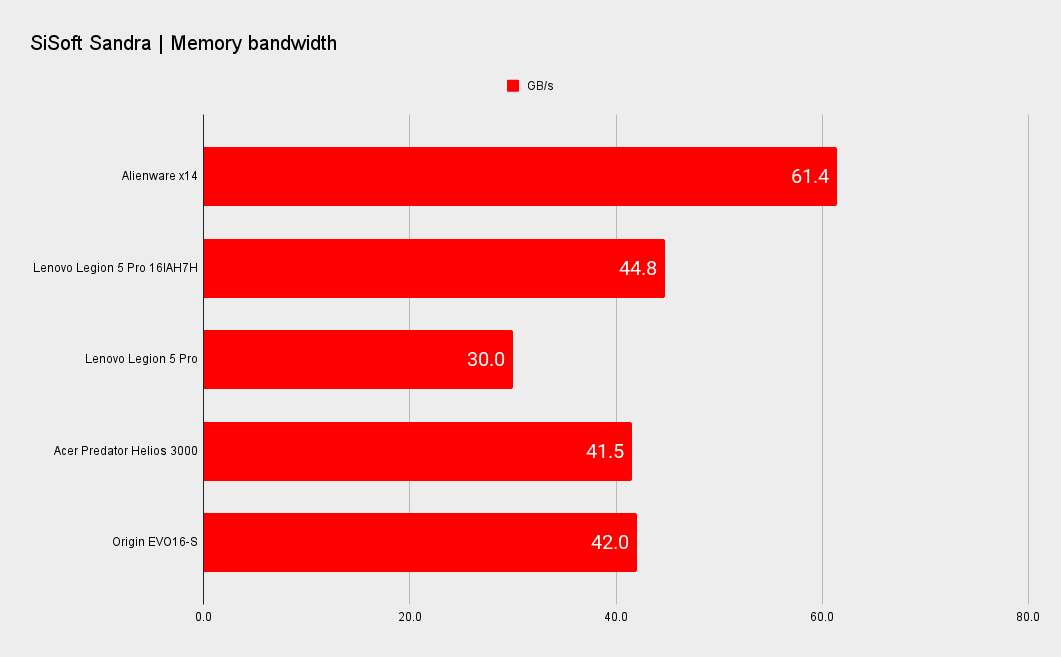
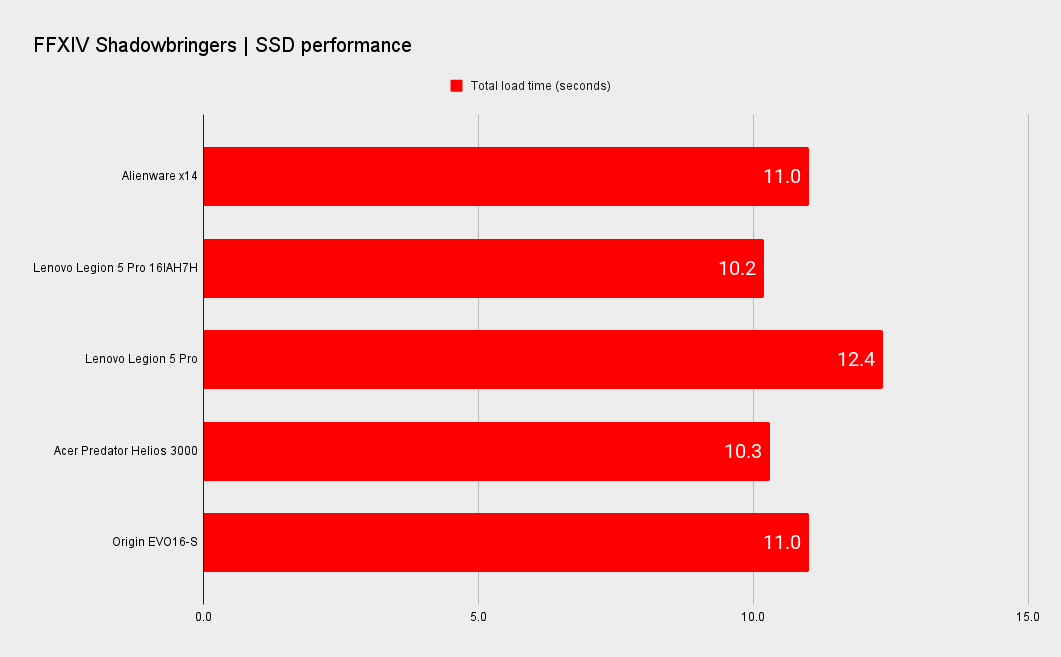
As an everyday laptop, the EVO16-S is a breeze to use. All my tests didn't send the fans into overdrive. At its worst, the CPU hit 93°C (the GPU stabilized around 80°C). Unlike the last Origin laptop I reviewed, the EVO16-S kept pretty quiet for the entirety of my time with it. Battery life wasn't an issue either. It nearly hit an hour and 30 minutes in the PCMark10 test with its 80W battery. That's about what you'd expect from something of this power. I could easily squeeze in a few matches of Overwatch 2, pause for a break, and play a few more without it yelling at me for juice.
The EVO16-S' dual USB 3.2 Type-A and USB 3.2 Type-C ports, serviceable speaker quality, light weight (around 5lbs) make it a well-equipped, versatile gaming laptop. The $1,900 build that I have is hard to recommend, however. At that price, it starts to fall short of cheaper, more powerful laptops. But if you can sacrifice storage or RAM and don't see yourself trying to push high refresh rates on a 1440p screen for some game you're hoping to go pro in, it's a smart choice.
The EVO16-S is the laptop if you want to actually treat it like a laptop and not some sort of desktop replacement. It's for playing a variety of games at respectable settings and a little more if you've got a power outlet nearby. If you can go with the $1,500 configuration, the EVO16-S is an impressive laptop that puts its strengths in maximizing what it's working with, namely its 1080p screen. If you've not been spoiled by 4K or have your dreams running in 240Hz, this laptop will serve you well.
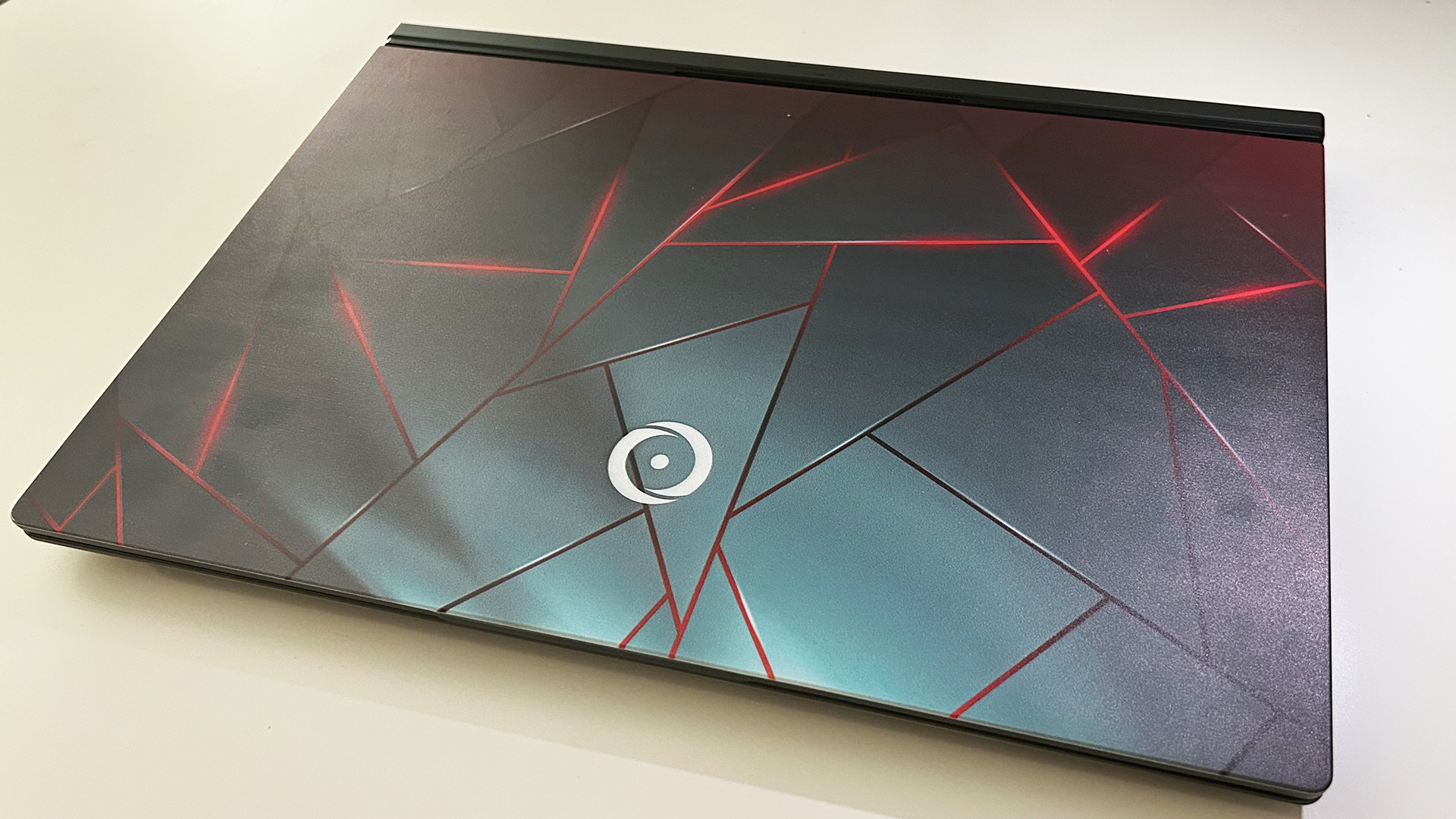
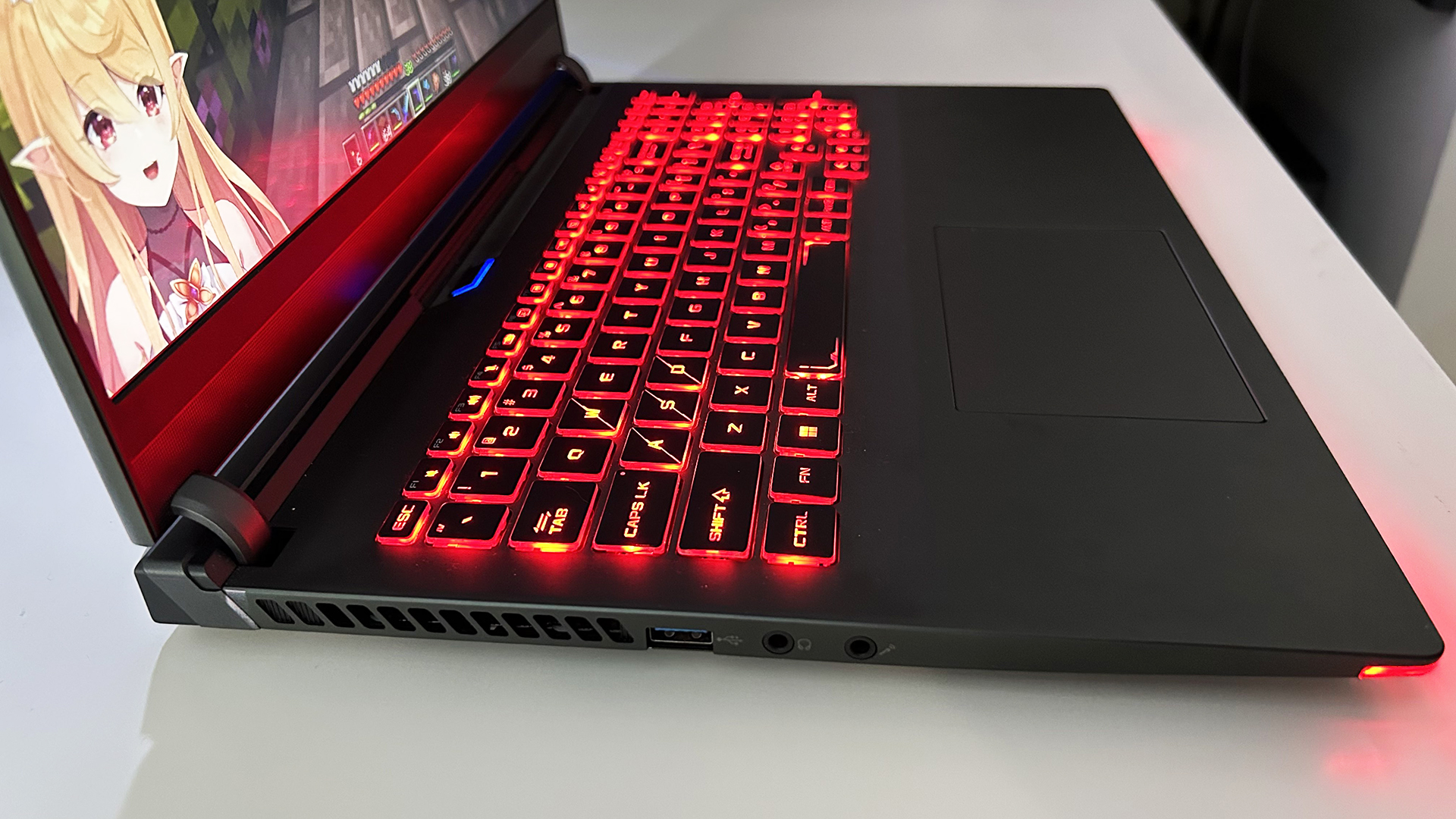
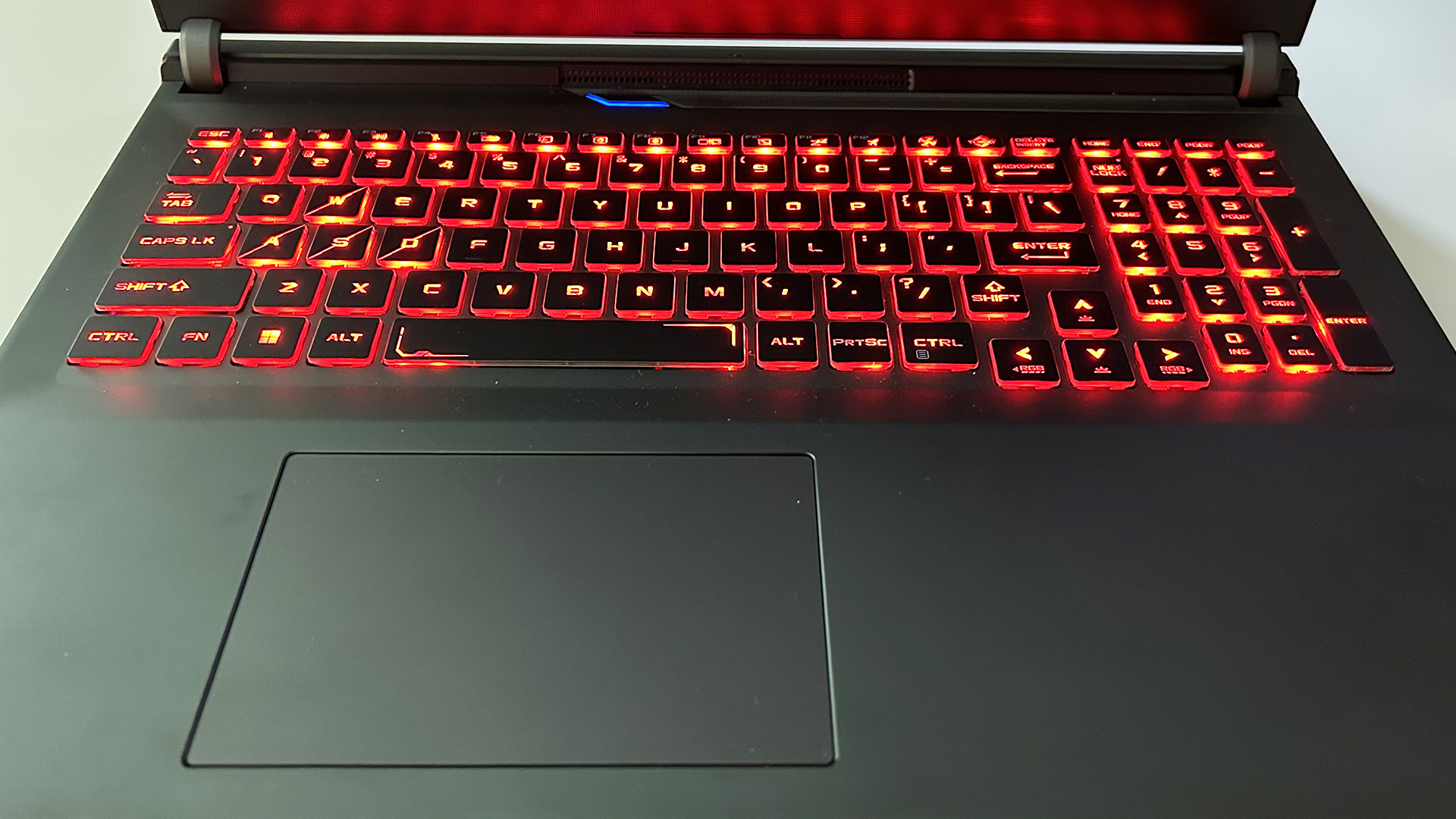
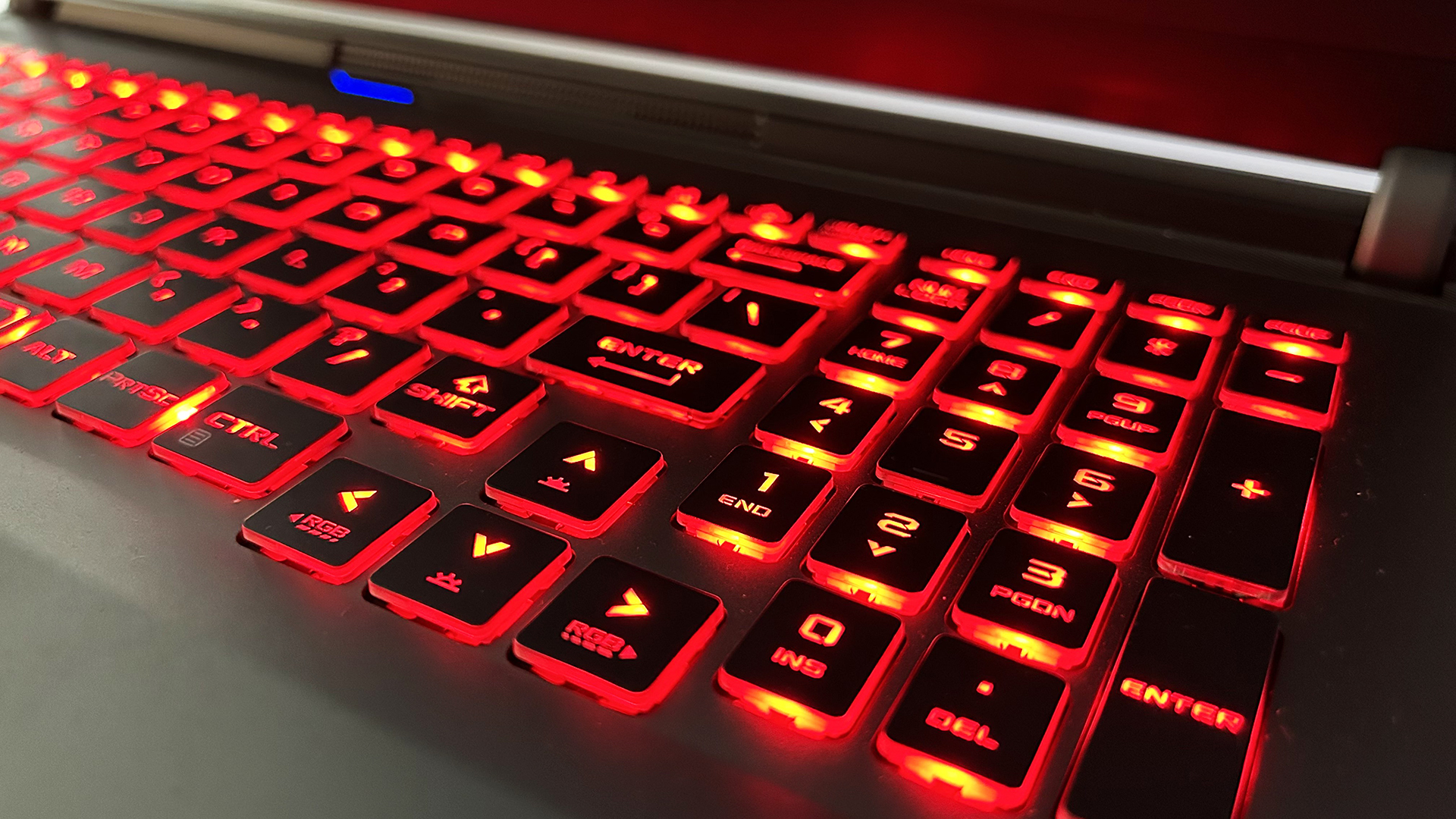
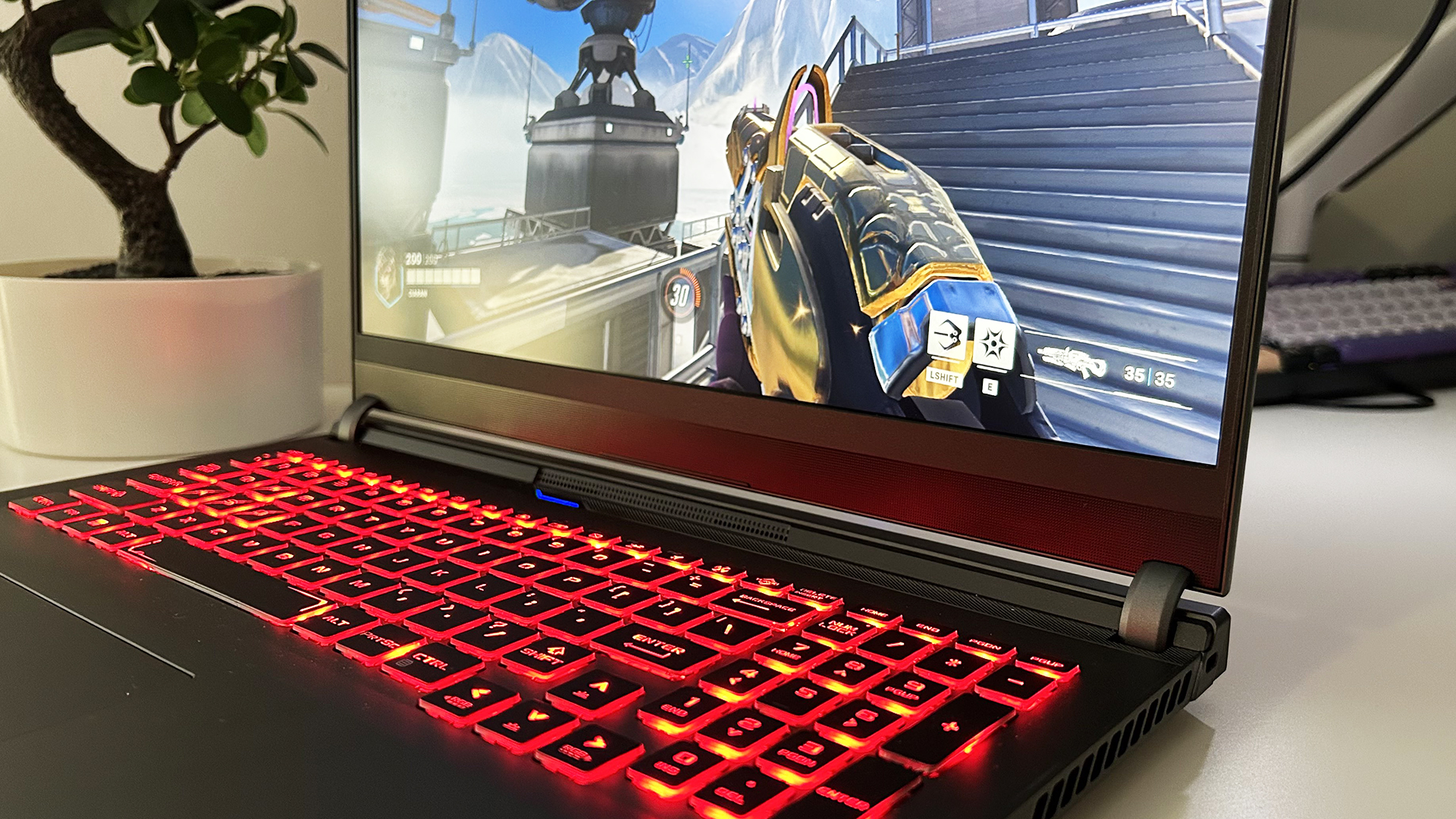
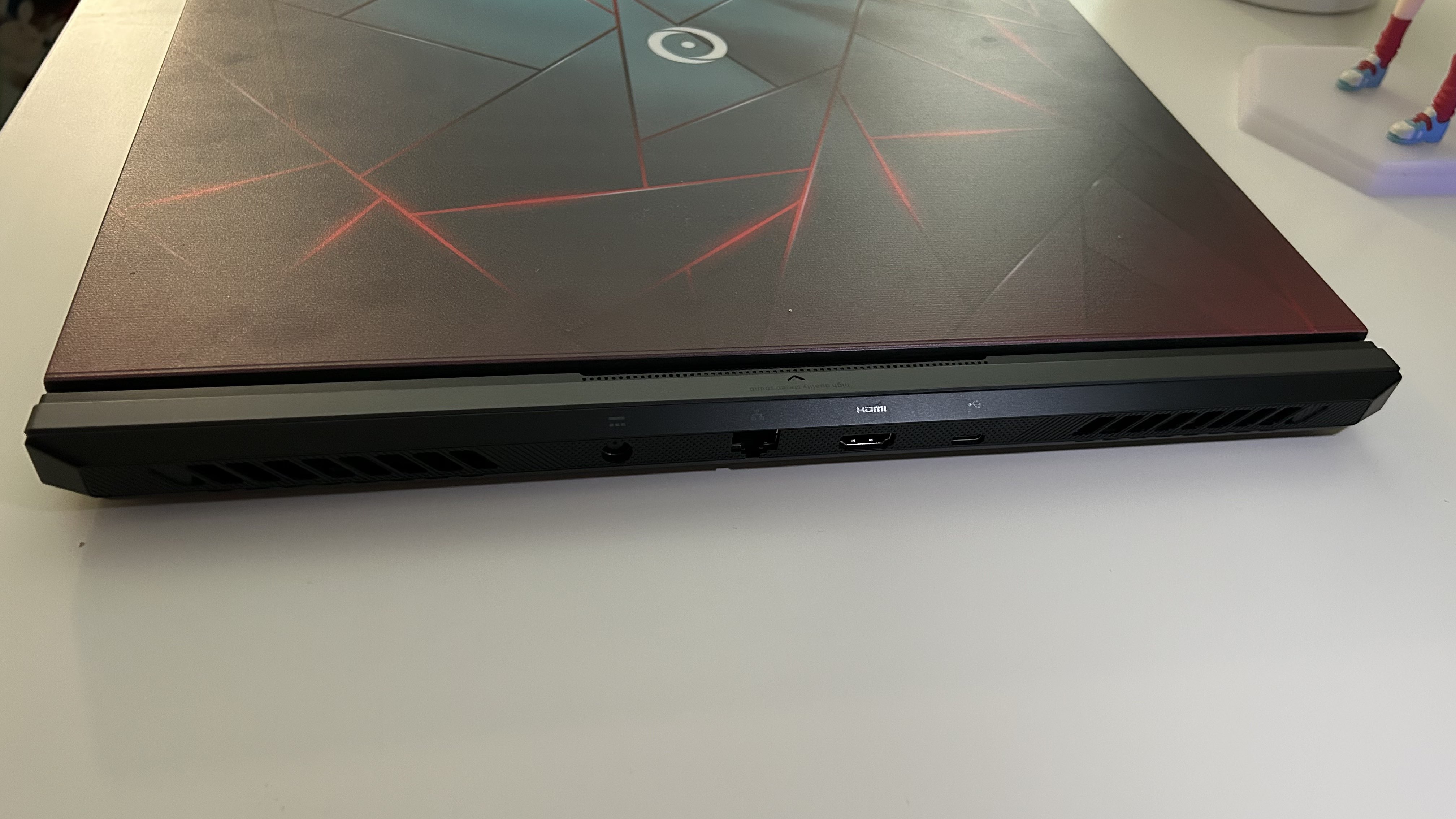
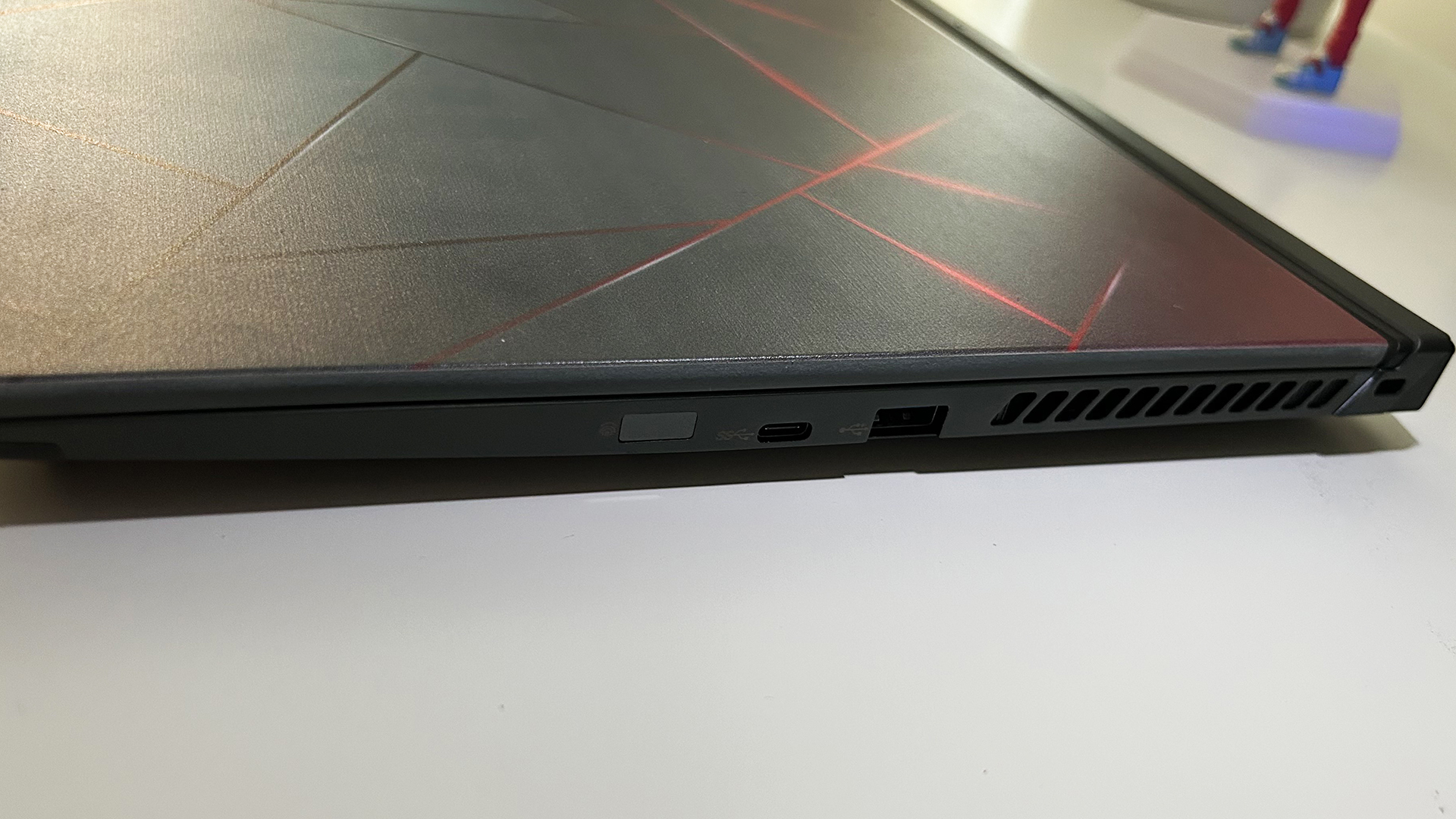
The Origin EVO16-S is a thin gaming laptop that sacrifices a fancy screen and still manages to chew through a variety of games at impressive settings.
Tyler has covered videogames and PC hardware for 15 years. He regularly spends time playing and reporting on games like Diablo 4, Elden Ring, Overwatch 2, and Final Fantasy 14. While his specialty is in action RPGs and MMOs, he's driven to cover all sorts of games whether they're broken, beautiful, or bizarre.

